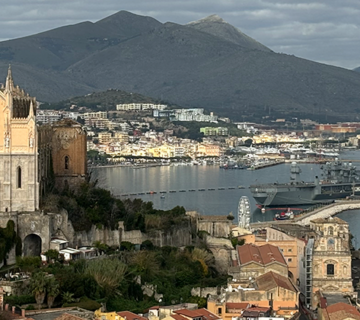 After a pastoral experience as an assistant parish priest that lasted for eleven years, my bishop, before entrusting me with the parish, gave me the opportunity to spend four months in the little town of Loppiano, at the Formation Centre for us diocesan priests. Here I found myself with around twenty priests and seminarians coming from various parts of the world to live an evangelical experience of communion, based on the spirituality of unity.
After a pastoral experience as an assistant parish priest that lasted for eleven years, my bishop, before entrusting me with the parish, gave me the opportunity to spend four months in the little town of Loppiano, at the Formation Centre for us diocesan priests. Here I found myself with around twenty priests and seminarians coming from various parts of the world to live an evangelical experience of communion, based on the spirituality of unity.
In the beginning, it was not easy among us priests to communicate due to the language barrier. For example, when Yvon from Madagascar arrived, he only spoke French. In order to communicate with him, I had to translate from Italian to English, and then Peter from the US translated from English to French. It was rather laborious, but we did it in a brothers spirit and we understood each other very well.
At this school of life, everything is done in harmony: praying, meditating, enriching lessons of theological, biblical, and pastoral care insights in various fields; but also work in the garden, in the kitchen, mopping the floors, translating into various languages, teaching the Italian language, playing football …
 This opening up to activities other than those typical to priests, and even doing many jobs involving manual labour, as Jesus had done for thirty years in Nazareth, makes this course a true integral school.
This opening up to activities other than those typical to priests, and even doing many jobs involving manual labour, as Jesus had done for thirty years in Nazareth, makes this course a true integral school.
For example, serving in the canteen on Sundays, together with the religious and the laity who also live this experience, welcoming the numerous visitors to Loppiano with a good lunch, setting the tables and then washing the pots, dishes, etc… a great number of things that one is able to do only together with the others, and with gusto. It’s only a detail of the activities that take place out here, but for me it was all new and it was a beautiful teaching.
The fact of working in the carpentry section from Mondays to Fridays, made me appreciate Saturdays and Sundays in a different way, as my people did in the parish.
To work in the handicrafts section (painting, smoothing, wood processing), it was necessary to learn to use well one’s senses of sight, hearing and touch; and to proportion muscular strength, otherwise you risk ruining the pieces or the machinery. Handicrafts is a school of attention and delicacy, fundamental characteristics in life, especially in that of a priest.
Even daily Mass acquired a different flavour altogether. For example, to offer one’s work at the time of the Offertory is much more concrete when your back hurts from spending the morning bending to hoe the ground or to sandpaper a piece of wood…
Besides, dealing with the house work all together has helped me to overcome doing things half-heartedly. There were certain things that I had always done but discussing it with the others and asking their opinions helped me discover that there was a better way to do them. It means that it is not just enough to do good, you need to do it well!
I feel very enriched by these few months lived in an “integral school” of life. The manual work made me understand more the life of my people, and what it means to witness one’s faith at the workplace. And I rediscovered the royal priesthood of every Christian that must lie at the basis of my ministerial priesthood.
(Article taken from Gen’s – the magazine of ecclesial life)


 Italiano
Italiano Español
Español Français
Français Português
Português



No comment